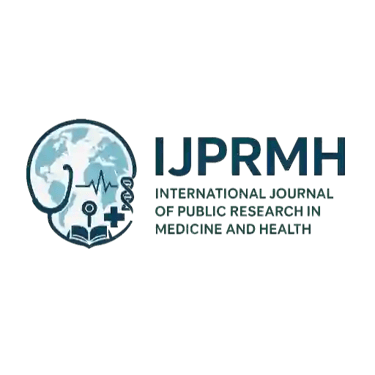Research and Publication Ethics
The International Journal of Public Research in Medicine and Health (IJPRMH) is committed to upholding the highest ethical standards in medical and public health research and publication.
Human and Animal Research Ethics
All research involving human participants must comply with the principles outlined in the World Medical Association’s Declaration of Helsinki and relevant national guidelines such as the Indian Council of Medical Research (ICMR) Policy on Research Integrity and Publication Ethics (2019).
Studies involving human participants or biological material must have prior approval from an Institutional Ethics Committee (IEC) or Institutional Review Board (IRB).
For case reports, case series, review articles, short communications, and letters to the editor, prior intimation to the IEC/IRB is required, and a statement to this effect must be included in the Materials and Methods section.
Studies registered in national or international registries (e.g., CTRI, IEC, HREC, PROSPERO) must include the registration number in the manuscript.
Authors are responsible for ensuring voluntary participation, informed consent, protection of participants’ rights, and anonymity of data.
Animal Research Ethics
Studies involving animals must adhere to internationally recognized standards for the care and use of laboratory animals and must have approval from the relevant Animal Ethics Committee.
Authors must explicitly state compliance with national or international guidelines and provide approval/registration details.
Publication Integrity
IJPRMH follows the guidelines of the Committee on Publication Ethics (COPE), the International Committee of Medical Journal Editors (ICMJE), and the World Association of Medical Editors (WAME). Authors are expected to maintain transparency, honesty, and accountability at every stage of the publication process.
Examples of Publication Misconduct (not exhaustive):
Plagiarism: Use of another person’s ideas, data, figures, methods, or text without proper attribution.
Fabrication: Making up data or results that were never obtained.
Falsification: Manipulating research materials, images, or data, leading to misleading conclusions.
Inappropriate Authorship: Listing individuals as authors who did not contribute, or omitting those who did.
Duplicate Submission/Multiple Submissions: Submitting the same or slightly modified manuscripts to more than one journal simultaneously.
Overlapping Publication: Publishing content that substantially overlaps with previously published work.
Salami Publication: Fragmenting data from a single study into multiple small papers without clear justification.
Improper Citation Practices: Misrepresenting or inappropriately inflating references.
Journal Policy on Human Rights, Animal Rights, and Informed Consent
Authors must confirm that all necessary approvals and consents were obtained before conducting and publishing their work.
For clinical research, authors must ensure adherence to the Declaration of Helsinki and provide justification for procedures if requested by reviewers or editors.
Informed consent must be obtained from human participants, and the process must be described in the manuscript.
For studies involving animals, authors must detail compliance with recognized ethical standards, including licenses, guidelines, and approvals.
Editorial Oversight
The Editor-in-Chief, supported by the editorial board, reserves the right to reject or retract manuscripts if there is evidence of ethical misconduct. Cases of suspected misconduct will be handled according to COPE flowcharts and best practice guidelines.
International Journal of Public Research in Medicine and Health
Publishing high-quality articles, tri-anually in health and medical sciences.
+919815551469
© 2025. All rights reserved.
